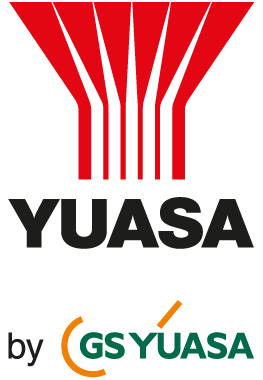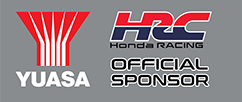
Source: GS Yuasa
Not all batteries are created equally and sometimes even the savviest consumer can get caught out by a poor-quality leisure type not lasting as long as expected. GS Yuasa explain the importance of choosing an original equipment manufacturer and the potential pitfalls of a low-quality battery. With so many options available, it’s important to understand that there can be significant differences between battery manufacturers and battery importers.
Original equipment (OE) manufacturers, like GS Yuasa, control every element of a battery’s development and construction, from the performance it offers to how it’s produced. This includes using high quality lead, case and separator materials and regularly testing to ensure that impurities are kept to an absolute minimum. GS Yuasa’s batteries are developed to deliver a specific specification and are thoroughly tested to ensure all products sold meet this.
Importers source their batteries with limited control over their production, typically purchasing a battery from a variety of factories before labelling them with a desired specification. This means they can be inconsistent in quality and true performance.
When it comes to batteries, the old adage of buy cheap, buy twice is particularly true. If a battery seems cheap, there’s probably a reason for this. Sadly, GS Yuasa’s laboratory testing regularly uncovers some concerning practices used to reduce the cost of battery. These include:
Reduced lead content
As lead is the primary cost of a battery, reducing lead content can bring significant savings. However, doing so will always result in an inferior product and one that provides less overall value than GS Yuasa’s equivalent.
One common way of reducing lead content is by either reducing lead density or the number of plates per cell. The number of lead plates in a battery dictates its performance. Using more plates increases amp hour specification and prolongs service life.
Battery weight has historically been used as an indicator or quality. This assumes that poor-quality, lower-cost batteries contain less lead resulting in a considerably lighter battery. However, it has been known that in extreme cases unscrupulous manufacturers will include a layer of sand or concrete at the bottom of a battery to increase the overall weight making direct comparison difficult.
This is why GS Yuasa advise choosing a recognisable battery brand such as GS or Yuasa. Doing so will ensure you buy a battery you can rely on to deliver guaranteed performance.
Overspecification, often to hide poor performance
Overspecification is the process of inflating a battery’s performance ratings, typically to mask a reduction in lead content and therefore performance. Unfortunately, overspecification is rife amongst budget batteries. This means it isn’t always clear what you’re getting, whether reduced performance or service life.
All GS and Yuasa batteries are produced to exacting standards and always meet the performance stated on the label. They conform to the EU’s capacity marking regulations introduced in 2010. These dictate that battery capacity labels accurately reflect a battery’s performance. To conform, all batteries must achieve at least 100% of stated label rating for CCA and 90% for Ampere-hour capacity performance. GS Yuasa target 100% of the battery’s Ah and CCA rating in both their GS and Yuasa-branded leisure batteries, ensuring they are well clear of the parameters specified in the EN standard.
In fact, GS Yuasa also include the Watt hour and cycle ratings alongside CCA or A (EN) and Ah capacities. Not only does this make it easier for consumers to understand the performance available, but it also makes it easier to determine the overall value.
Reduced safety features
Another way of reducing the cost of a battery is by removing additional features. All GS and Yuasa leisure batteries include enhanced safety features including an integrated flame arrestor, protecting against external ignition sources entering the battery and robust built-in carrying handles for safer handling.
Many lower-cost batteries omit these features in the pursuit of cost-saving, however all play an important role in producing a battery that is fit for purpose whilst providing safety protection.
Overall cost of ownership
Whilst buying a cheaper battery might seem like a quick win at the time of purchase, the overall cost of ownership should be factored into the buying decision.
Whereas a premium battery might cost slightly more than a budget equivalent to buy, it’s likely to provide a much longer service life and therefore negate any initial savings. This is at odds with the mindset that because something is cheaper, it offers better value.
For example, if a premium battery provides 30% longer service life than a budget equivalent, and the price difference is less than 30%, then the premium battery provides better value in real terms.
Whilst for some, the initially higher price tag may be difficult to justify, when factoring in the overall cost of ownership, a premium battery typically provides significantly better value for money.
This is why the Japanese manufacturer always advises choosing a battery from a trusted, original equipment (OE) manufacturer. For example, GS Yuasa’s Yuasa-branded batteries, which are fitted as standard by Swift, Europe’s number one brand for leisure vehicles and thousands of caravan and motorhome owners each year.
For more leisure battery-specific guidance, or to find out more about Yuasa’s range of NCC verified leisure batteries, visit www.yuasa.co.uk/leisure

Souce: GS Yuasa
or register here for the new YUASA newsletter: Register to the newsletter
GS YUASA is one of the largest manufacturers and suppliers of rechargeable batteries with production facilities worldwide and an extensive marketing and distribution network in Europe. The wide range of lead-acid and lithium-ion batteries covers most well-known industrial applications, such as security and alarm systems, UPS and emergency lighting systems as well as OEM equipment. The three business units include Industrial (industrial batteries for standby and cyclic applications), Automotive and Motorcycle (automotive and motorbike starter batteries).
GS YUASA Battery Germany GmbH, founded in 1983 as YUASA Battery (Europe) GmbH, is based in Krefeld and serves 15 countries within Europe from there.



